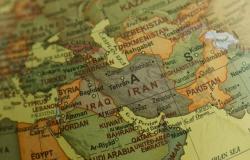
When the Biden administration came to power, the hope was that the Joint Comprehensive Plan of Action (JCPOA) (2015), the so-called Iran nuclear deal, would be restored. Due to domestic constraints and in the case of Iran also a valid alternative, both the US and the Rohani administration played hardball during the negotiations. As the Iranian nuclear program further advanced and the ties with Russia and China became stronger, the conservative Raisi administration was even less interested in reviving the nuclear deal. What remains are mini-deals that are more advantageous for Iran than for the US. Billions of dollars of Iran are (or will be) unfrozen by the US, while Iran's break-out time of its nuclear program has shrunk to zero days. Given that the overall goal of the international community (and especially the US) was to prevent Iran from building the bomb, one can only conclude that that policy has basically failed. Although Teheran has not built the bomb yet, it is now closer to the bomb than ever. Liberal theory and more in particular Putnam's two-level game help explain this outcome.
Policy Implications
- A maximum pressure strategy vis-à-vis another country does not always work. Examples are the policy vis-à-vis the Iranian nuclear programme by both the Trump and Biden administrations.
- It is not abnormal to set the bar high in the beginning of negotiations in order to lower it thereafter. The danger, however, exists that the bar is set too high in the beginning, and that in that case the other side refuses to negotiate or halts the negotiations. That is what happened in the beginning of the Biden administration with respect to the goal of restoring the JCPOA.
- Economic sanctions most of the time do not work. That is what the academic literature indicates. As a reaction to the sanctions, also Iran built a resistance economy, producing more products domestically, and at the same time accelerated trade with states that were unwilling to impose severe economic sanctions, such as Turkey, Russia and China.
- Nuclear non-proliferation is a noble goal, but very difficult in practice. If a state really wants to acquire nuclear weapons, the odds are that it will succeed (see for instance North Korea). The best way to prevent nuclear proliferation is by eliminating all nuclear weapons as required by article 6 of the Nuclear Non-Proliferation Treaty. To ask Iran not to acquire nuclear weapons, while sitting upon a pile of thousands of nuclear weapons themselves is not credible and therefore not sustainable.
Photo by Lara Jameson